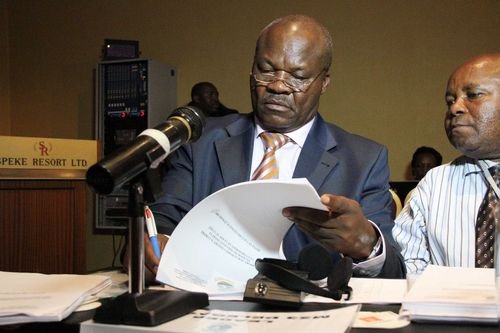France opens investigations into former DR Congo rebel leader after Paris arrest

Alleged former Congolese warlord Roger Lumbala was arrested in Paris on December 29 and placed under formal investigation on January 2 for “complicity in crimes against humanity,” French anti-terror prosecutors said on Monday.
An armed group he led is accused of crimes including rape, summary executions, mutilation and cannibalism during a deadly civil war in the Democratic Republic of Congo.
French prosecutors also accuse Lumbala of “participation in a group formed for the purpose of preparing war crimes.”
Lumbala has rejected the allegations, according to an AFP report.
According to a UN Security Council report from 2003, Lumbala led an armed group called the Rassemblement Congolais pour la démocratie-National (RCD-N), created in 2000 and backed by the Ugandan military during the country’s deadly civil war.
The UN investigation “confirmed a pattern of looting, killing and rape as tactics of war” in 2002 for RCD-N forces in the Beni area, in the northeastern region of Ituri.
“The summary executions targeted the Nande ethnic group and Pygmies, who were forced to flee to the forest for the first time to escape persecution,” the UN report said.
“The victims reported several cases of mutilation followed by acts of cannibalism,” the report added.
Fighters involved in the so-called ‘Clean the blackboard’ operation confirmed they had been sent by Lumbala, the UN Security Council said. A separate report by the Office of the UN High Commissioner for Human Rights says those taking part in the operation “tortured, mutilated and killed” other combatants before using their organs “as war trophies.”
Between 12 and 29 October 2002, RCD-N soldiers allegedly killed 173 civilians and carried out “acts of cannibalism”, says the report. An unknown number of civilians were mutilated while soldiers raped a “large number” of women and children.
The report links other incidences of mutilation, rape and cannibalism to the ‘Clean the blackboard’ operation.
The French judiciary has the jurisdiction to prosecute cases of crimes against humanity committed abroad on foreign victims if the perpetrators are present on French territory or are residents in France.
The Democratic Republic of Congo, then known as Zaire, gained independence from Belgium in June 1960. The head of the army, General Mobutu Sese Seko, came to power in a military coup in 1965 and remained largely unchallenged throughout the 1970s and 1980s.
In 1996, dissident groups led by Laurent Kabila — and strongly supported by Rwanda and Uganda — rose in revolt against endemic corruption. They entered the country’s capital of Kinshasa in May 1997 and Kabila declared himself president.
Internal and external dissatisfaction with Kabila gradually grew until 1998, when a new rebel group — again backed by Rwanda and Uganda — formed and a second conflict broke out.
In January 2001, Kabila was assassinated by one of his bodyguards and his son, Joseph Kabila, took over. Under the younger Kabila, foreign forces gradually departed and the Congolese parties managed to reach an agreement for a transitional national government that included the three major belligerent groups, a number of smaller ex-rebel movements and representatives of civil society and the political opposition.
Lumbala becamse a minister in this government between 2004 and 2005.